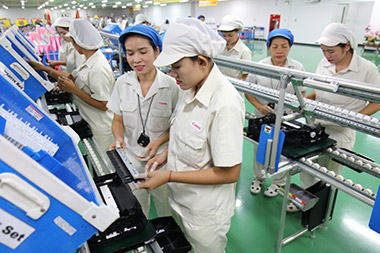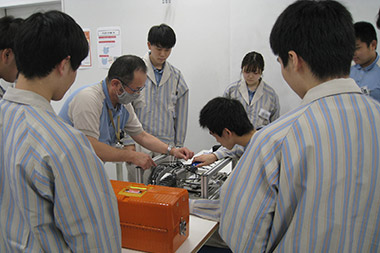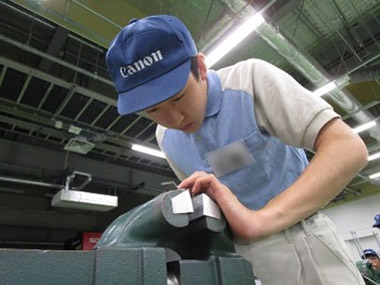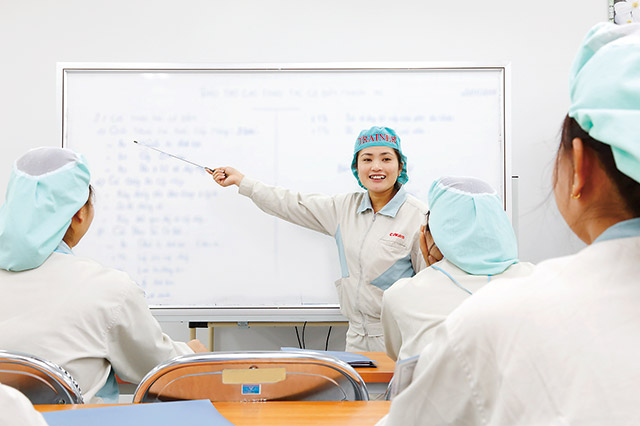Monozukuri always has been and always will be predicated on the skills of people. While Canon is working toward full automation of production systems, it is important to remember that automation is fundamentally about using human ingenuity and expertise to design machines to perform generally manual processes. Human input into this process is vital; otherwise, we may end up with machines performing unnecessary or wasteful tasks. Automation cannot evolve unless there are people capable of performing higher-level tasks than machines. Therefore, we need to train and equip workers with extremely high levels of technical skill and expertise that can be passed on to future generations. This is how monozukuri will evolve.





